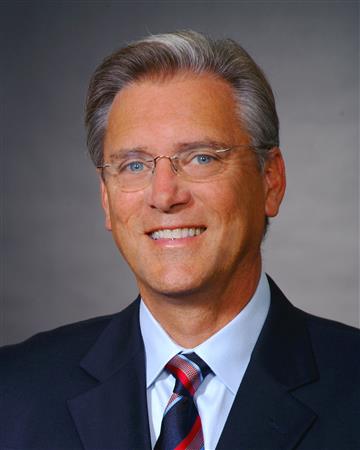
Complex was a keyword used by Topher Hansen as he talked about CenterPointe.
We learned about the variety of services provided by CenterPointe - it is a complex organization. We heard about the conditions in place that warrant naming their health issues as complex. And, we listened as Topher talked about the complex treatment of the people seeking help from CenterPointe.
Another important aspect is how they approach things using the positive - not the negative. So rather than talking about the issues as problems they approach them in a way to motivate the person to become healthier by focusing on strengths and assets.. They provide services for the health and well being of those seeking services - it is not a treatment program but a recovery plan. Topher explained that they do not dictate what the person needs to do - they find out what they want to do and go from there. He quoted one person as saying "At CenterPointe they don’t make me get better, they let me get better”.
He started with some numbers:
- - 3300 people served last year
- - 100,000 meals served
- - 1.2 million per month is the cost to run the programs
- - 38 different programs are offered in Lincoln and Omaha
- - 240 staff members
- - 200 supported housing units every night
- - Dozen - approximate number of technical computer programs needed to support the various programs
But what Topher said was that, though the numbers are interesting and talks about the complexity of the organization, it comes down to "a person that walks in the front door and is ill, doesn't have any money and needs help".
Of the people served last year:
- - 66% made less than $1,000 during the year
- - 34% were homeless, staying in a shelter, or couch surfing
- - 99% (approx) have mental health and substance addictions; many also have physical health issues
- - 60% are male, and therefore 34% female
- - Late 30's - average age; but some that they serve go into their 60's; this age has risen which is evidence that more people are getting help for their issues and therefore living longer
Substance Addictions
#1 Alcohol
#2 Methamphetamine
The least is opiods which surprises many. He indicated that the reason is that we hear about a lot of accidental overdoses.
Topher talked briefly on the other programs offered:
- - Crisis response - they work closely with police; they are available and hope to affect suicide rates
- - Outpatient - groups, therapists are available; many are done online now; they make private rooms available for those that do not have phones to join
We offer a broad continuum of care – more than 35 programs in the areas of crisis response, treatment, rehabilitation, housing, and peer support. There is no wrong door to walk through to start your journey of recovery with CenterPointe.
We use a harm reduction model to help you work toward abstinence and mental stability. This model recognizes relapse as part of the chronic diseases of addiction and mental illness.
A harm reduction model also guides us away from moral judgments and toward the empowerment of people to discover their own healthy path of recovery.
Our spectrum is inclusive, serving men and women, civilians and veterans, religious and nonreligious individuals. We welcome all sexual orientations and gender identities.
We encourage people to develop a Wellness Recovery Action Plan, explore a personal spiritual path, and utilize a 12-step program if it is helpful for ongoing support of recovery.
CenterPointe is a Region V and Region VI provider. We can provide services on a sliding fee scale for income-qualified people. We also accept Medicaid, Medicare, and private insurance.
BIO: